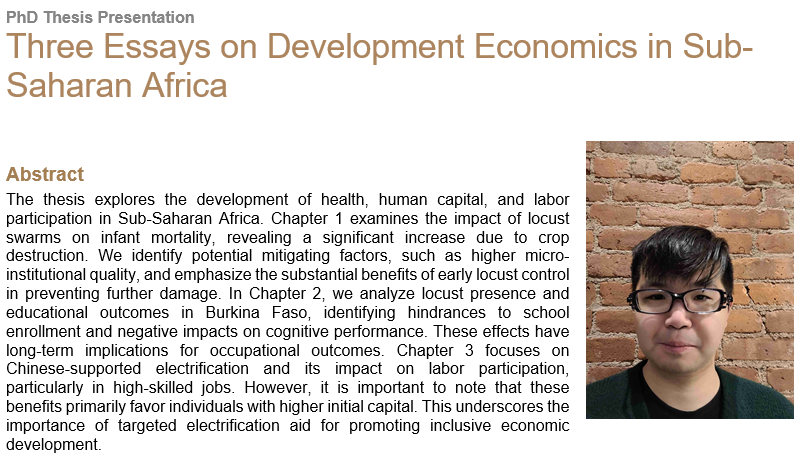Abstract
The thesis explores the development of health, human capital, and labor participation in Sub-Saharan Africa. Chapter 1 examines the impact of locust swarms on infant mortality, revealing a significant increase due to crop destruction. We identify potential mitigating factors, such as higher micro-institutional quality, and emphasize the substantial benefits of early locust control in preventing further damage. In Chapter 2, we analyze locust presence and educational outcomes in Burkina Faso, identifying hindrances to school enrollment and negative impacts on cognitive performance. These effects have long-term implications for occupational outcomes. Chapter 3 focuses on Chinese-supported electrification and its impact on labor participation, particularly in high-skilled jobs. However, it is important to note that these benefits primarily favor individuals with higher initial capital. This underscores the importance of targeted electrification aid for promoting inclusive economic development.

